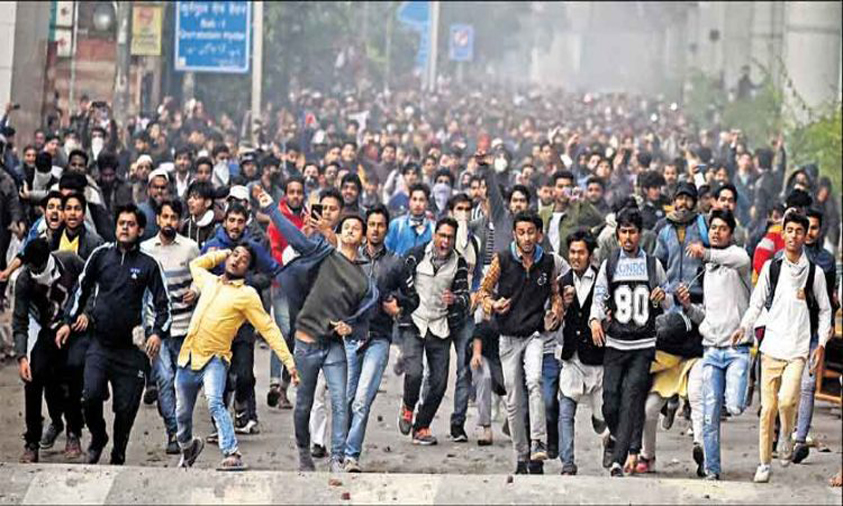New Delhi: Japanese Prime Minister Shinzo Abe’s visit to India for an annual summit with his Indian counterpart Narendra Modi in Guwahati was on Friday cancelled in the wake of violent protests over the amended citizenship law in the Northeastern region.
Both sides have decided to “defer” Abe’s visit for the December 15-17 summit to a mutually convenient date, External Affairs Ministry Spokesperson Raveesh Kumar said without giving any reason for the decision. The cancellation of the Japanese Prime Minister’s trip came a day after Bangladeshi Foreign Minister A K Abdul Momen and Home Minister Asaduzzaman Khan called off their visits to India following enactment of the controversial law. “With reference to the proposed visit of Japanese PM Abe to India, both sides have decided to defer the visit to a mutually convenient date in the near future,” the MEA spokesperson said.
Diplomatic sources said the Japanese government clearly conveyed to New Delhi that it would not be possible for Abe to travel to Guwahati in view of large-scale protests in the northeastern region. They said the summit is now expected to take place next year.
Meanwhile, Union Home Minister Amit Shah cancelled his visit to two Northeastern States — Meghalaya and Arunachal Pradesh — scheduled on Sunday and Monday, officials said. Eight columns of the Army and Assam Rifles have been deployed in Assam, including capital Guwahati to control the ongoing violent protests.
Defence Public Relation Officer Lt Col P Khongsai said the Army and Assam Rifles were requisitioned by the civil administration in Morigaon, Sonitpur and Dibrugarh districts besides Guwahati to arrest the deteriorating law and order situation.
All Army and Assam Rifles columns have managed to restore normalcy in the areas they were deployed and have been continuously working to aid the civil administration, Khongsai added.
In Delhi, the Jamia Millia Islamia University turned into a battlefield after police and students, who wanted to march to Parliament House to protest the Citizenship Amendment Act, clashed with each other prompting AAP MLA Amanatullah Khan to reach the spot to take stock of the situation.
Fifty students were detained following a clash between police and students after the protestors were stopped at the varsity gate and prevented from carrying out their march. The students, who were baton-charged by police personnel, alleged that the police also used tear gas to quell their march. The students also resorted to stone-pelting.
Protests over the amended Citizenship Act reached the shores of West Bengal with agitators resorting to violence and arson at railway stations and thoroughfares across the State, seeking immediate revocation of the law. According to police sources, people in the minority- dominated districts of rural Howrah, Murshidabad, Birbhum, parts of Burdwan and North Bengal hit the streets in the morning, raising slogans against the Narendra Modi-led government at the Centre. Some of them even attacked local BJP workers and leaders, prompting the saffron camp to allege that the attacks were masterminded by the ruling TMC.
West Bengal Chief Minister Mamata Banerjee appealed to people to maintain peace and calm and urged the protesters to refrain from taking law into own hands. Similar pleas were also made by Governor Jagdeep Dhakhar, who requested people not to violate law and order. In Murshidabad district, bordering Bangladesh, protesters set fire to Beldanga railway station complex and thrashed RPF personnel deputed there.
